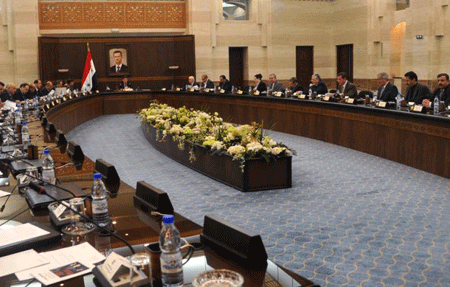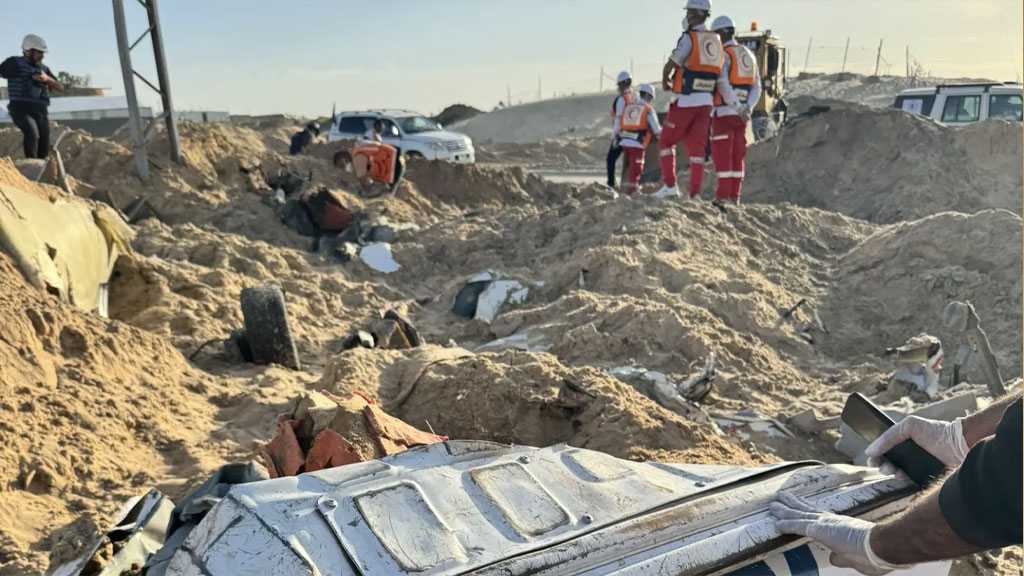
Assad’s Speech and the Backstage Plan

Al-Akhbar, 08-01-2013
By Nasser Charara
The reaction to Bashar al-Assad's "roadmap" to resolving the Syrian crisis was as expected: rejection and denunciation on the part of the opposition and their international supporters.
This comes as no surprise to al-Assad, whose speech was instead directed at a flurry of negotiations going on behind the scenes ahead of a US-Russian summit set to be held in the middle of March.
Many consider this meeting critical, for if it does not lead to an agreement on a solution between the two powers, the repercussions will be costly.
International Roadmap
The sticking point at the moment appears to be the fate of al-Assad himself: Will he have a part in the transitional period?
Assad's speech was preceded by several rounds of negotiations between the international backers of the warring sides. The foreign ministers of Russia and the US met in Dublin in early December 2012 and new proposals were put forward by both Iran and Turkey.

The latest proposal from Tehran seems to be an attempt to counter Washington's insistence on al-Assad's departure by putting forward the idea of free parliamentary and presidential elections, which Assad can contest.
al-Assad's speech was intended to reinforce this point by proposing that the decision of whether he stays or goes will be decided in free elections and not by foreign powers.
Arranging the Seats
A diplomatic source describes what is happening amidst all these discussions as a process of arranging the seats around the negotiating table. The regime has now laid out its vision for a solution and there is a general idea of who will represent the opposition. As for the identity of the individuals who will sit around the table, this requires yet more negotiations among the parties involved.
The Dublin meeting between US Secretary of State Hillary Clinton and Russian Foreign Minister Sergei Lavrov resulted in an exchange of reassurances on critical matters. This helps clear the way for a resolution before the crisis destabilizes the entire region, according to a Russian diplomatic source.
Lavrov told Clinton that Syria's stock of chemical weapons has been moved out of areas that are under threat of being taken over by the opposition and are being safely guarded by the regime in coordination with the Russian Embassy in Damascus.
Clinton, for her part, replied by reassuring Lavrov that in Washington's view the solution in Syria will be a political and not a military one.
Al-Assad's speech can therefore be seen as an attempt to save a seat for the current regime in any final settlement, along the lines of an amended Geneva agreement, which would allow al-Assad to oversee the transitional period.
What Next?
There are three possible scenarios that could result from al-Assad's speech. The first is a rejection by the opposition, which will market the speech as out of touch and falling short of a realistic solution.
Al-Assad's speech can therefore be seen as an attempt to save a seat for the current regime in any final settlement.
This is intended to reinforce an interpretation of the Geneva agreement, favored by the US, that there is no place for the regime in any transitional government.
There are those in Washington, however, who are concerned with the rise of radical Islamists in Syria along the lines of what happened in Afghanistan.
Second, the hardline Islamist groups - which today dominate most of the territory under the opposition's control - may very well decide to escalate their military campaign in order to undo a possible resolution, of which they would be the first victim.
The third outcome will likely revolve around the idea proposed by Assad for a "national agreement" that would precede any new constitution and would determine the course of the transitional period.
The Islamists - and the Muslim Brotherhood, in particular - will strongly object to provisions intended to make sure that the new Syria will remain a non-religious state and not abandon its role as a defender of the central Arab causes.



